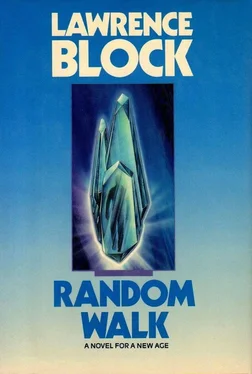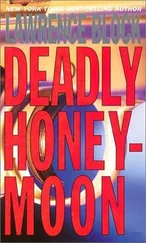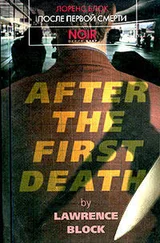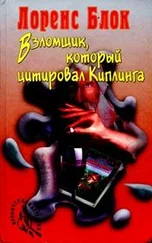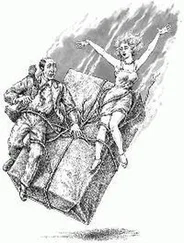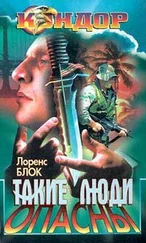He wouldn’t, of course. But neither would he wait a month. There was no real need to space his killings, so long as he didn’t do anything to attract attention. It was not as though there was an annual bag limit for hunters. Women were not an endangered species. They were all over the place; the country was teeming with them.
The summer stretched out before him, warmly inviting. There was no reason he couldn’t make himself a gift of the next three months. His business dealings would largely run themselves. At the same time, the prospect of business would justify extended absences; all he had to do was announce that he had a big deal taking shape, and he could be out of town for the whole summer without ruffling anyone’s feathers. He need only call home a few times a week, and drop in once or twice to take care of business locally, and he could have the whole summer to himself.
And it was still two weeks until Midsummer Eve. His count stood at fifty-three now. By the first day of autumn, how great a string might he have?
Seventy? Eighty? A hundred?
He remembered John Randall Spears thundering at them during the real estate seminar. “If your properties yield up a positive cash flow, there is nothing in the world to prevent you from acquiring more of them. If you can own one house you can own a hundred houses, you can own a thousand houses. There is no limit to the amount of wealth you can create. There is no limit to the amount of property you can own!”
No limit.
There was A unit vacant at the Pine Haven, over near the southern tip of the U, and Guthrie and Jody took it for the night. Jody sprawled on his bed, eating Wendy’s french fries and sipping a cold one from the 7-Eleven. The CNN announcer was telling of an earthquake in Guatemala, a drought-induced famine in Africa, a terrorist bombing in the north of Ireland. When they cut to a correspondent for a report on acid rain, Guthrie asked him if he minded if he turned it off.
“Hell, go right ahead,” he said. “Who wants to listen to all that shit?” He yawned, scratched himself. “Get me some clothes tomorrow. Nothing like taking a good shower and putting on shorts you been wearing three days straight. Or is it four?” He yawned again. “Pick up some clothes and a sack to haul ’em in. These boots worked out better than I was afraid they might, but I’ll get me some soft shoes, too, so I can change if I want. And I got to tell you, hoss, these socks are ripe.”
“You didn’t have to tell me.”
“Already got the word, huh? Sorry about that. Sara and Thom’ll need knapsacks, too, instead of those suitcases they brought. I’d think we’ll be able to find whatever we need here in Bend.”
“I would think so.”
“Canteens for everybody, too. A little ways east of here it starts getting dry, and it might be pushing it to have two people sharing a canteen like you and I been doing. Guthrie? How you feel about all this, boss?”
“About all what?”
“Everybody invitin’ theirselves to your party.”
He thought about it. At length he said, “She’s special. Sara.”
“Yeah. Guthrie, she don’t appear blind. When she looks at you—”
“I know.”
“The boy’s all right, too. Thom. Thom with an H — he’s right particular about that H.”
“A blind woman and a boy.”
“Just what you needed, right? You figure they’ll slow us down much?”
“Well, I don’t see them picking up the pace and pushing the two of us past our normal limits.”
“I don’t know.”
“Oh?”
“Just a feeling I get. Like bein’ around that woman might push anybody past their normal limits.”
For that matter, Guthrie thought, it was hard to know what one’s normal limits were. He had begun to suspect, when he first realized he had unwittingly quit smoking, that some of the ordinary rules of life had been somehow suspended. He’d tried to tell himself that walking out of his life had lessened the stress he was under, and this in turn had reduced his need for tobacco. But it had never been stress that made him smoke; he’d smoked because he was addicted to nicotine, and the greatest stress imaginable had always been that of trying to go without a cigarette when he wanted one.
Then he’d had another hint when McLemore had just about called him a liar for saying he’d slept out without a tent or a sleeping bag. He not only had survived, but he’d done so without being especially conscious of the cold, as if his spirit had set up some sort of energy force field that protected him as effectively as any construction of down and canvas.
He and Jody had slept out their second night together, in a stand of mixed hardwoods and conifers north of La Pine. They’d had a small fire and cooked hot dogs that they’d bought in La Pine, and they’d slept in their clothes on either side of the dying fire, and neither of them had been bothered by the cold. The fire, which had burned down low by the time they went to sleep, could hardly have provided much warmth. The only explanation he could come up with was a force field.
“I know such things can happen,” he’d told Jody. “I know a couple of people who’ve done fire walks, where you walk twenty feet across a bed of burning coals in your bare feet.”
“And you don’t get burned?”
“Not a blister. The leader has you chanting and half hypnotized into some kind of altered state, and your mind creates an energy field that keeps the heat from reaching you.”
“It’s not just that you don’t feel it ’cause you’re hypnotized?”
“No, because your clothes don’t burn either, and how would you hypnotize a pair of pants?”
“You actually know people who did this?”
“Several of them. There’s one fellow who goes all over leading fire walks, he’s from California—”
“Where else?”
“—and I think he’s led something like thirty thousand people over the coals. But he has this whole ritual he has everybody go through, and we just had a force field settle over us without any effort on our part.”
“If that’s what it was.”
“If that’s what it was,” he agreed. “But I can’t think what else it might have been.”
“Well, maybe we’re just hot stuff, hoss. Ever think of that?”
Hot stuff indeed. Guthrie, a heavy smoker leading a sedentary life, had managed twenty miles a day across the Cascades without any ill effects, and each day’s ordeal seemed to be leaving him stronger than the day before. Jody, younger and stronger but clearly overweight and out of shape, had matched his pace without straining; at least as remarkable, he’d hiked seventy miles in the same pair of socks without raising a blister. (A stench, perhaps, but not a blister.)
Could a boy and a blind woman keep up with them?
The question, he decided, was academic. In the first place, their pace was however slow or fast they decided to go; it wasn’t as though they had a train to catch. And, whether Sara and Thom could keep up or not, the four of them were going to stay together. From the moment she’d clasped his hand he’d known that much.
In the morning they ate a light breakfast and did their shopping. By eleven o’clock they were out of Bend, heading east on US 20. The first town on the map was Millican, some twenty-six miles south and east of Bend. Guthrie thought that might be further than Sara and Thom could be expected to go their first day, especially since they were getting a late start. And they were out of the national forest now, and he wasn’t sure of the etiquette involved in pitching camp on private land. He’d heard it wasn’t too good an idea to wander far from the roadside. There was always the chance you’d stumble on somebody’s marijuana plantation. The growers, whether or not they owned the land where their harvest was maturing, were capable of a murderous response to intruders.
Читать дальше
